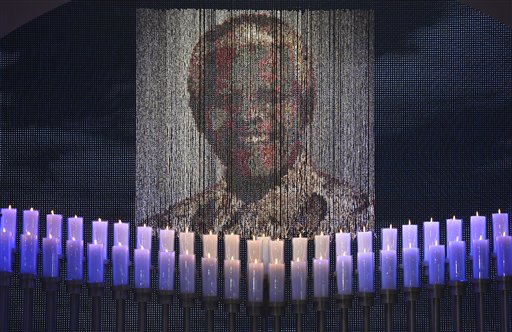Nelson Mandela has been laid to rest. And with his burial in his ancestral homeland, the new South Africa has truly begun. No longer can it enjoy the “Madiba magic” of its charismatic transitional leader. No longer will it be appreciated simply for the secular miracle of its peaceful, democratic settlement. Today South Africa becomes a country like any other–a developing country, with massive challenges and deep-seated political problems.
Today is also the day I leave for South Africa on a family visit. I have not been back for several years. It is a place that never quite leaves you, even when you believe you may have left it behind. I am looking forward to taking in the mood of the country as it evaluates all that has happened, on the eve of new elections and democracy’s 20th anniversary. (I am also looking forward to the summer sunshine, the spectacular landscape, and the party vibe.)
A few thoughts. South Africa’s problem is essentially that while its new constitution is fairly sound (barring the socioeconomic rights, which were as weak in practice as some had warned), a constitution is only as strong as the people’s will to uphold it. Essentially, South Africa’s constitution is a liberal model grafted onto an illiberal society, and increasingly threatened by the illiberal democracy that illiberal society has managed to produce.
Israel is a bit like that. A liberal, parliamentary system was superimposed upon a diverse population, few of whom had lived in democratic societies before. The liberals, moreover, were also utopian socialists, and sought to create a state-centered economy while maximizing personal freedom. That experiment faltered, and today Israel’s government has a conservative, technocratic character–but the old socialist sentiment lives on.
The United States is in the midst of a backlash by a liberal (in the classical sense) population against an illiberal government that is rapidly concentrating executive power in the interest of carrying out statist policies, and a political class that has an increasingly corporatist character. It is discouraging how little today’s leaders have learned from history. But it is encouraging that the American population has resisted them, albeit unevenly.
In Israel, the backlash in 2011 took the form of hundreds of thousands marching in the streets demanding more statist policies. In South Africa, the backlash in 2007 (and ever since) has taken the form of populist, anarchic protest. What is exceptional about the U.S. is how the American people have retained a love of liberty deep in their national character, despite efforts by the “better” among us to beat that character into something else.

COMMENTS
Please let us know if you're having issues with commenting.